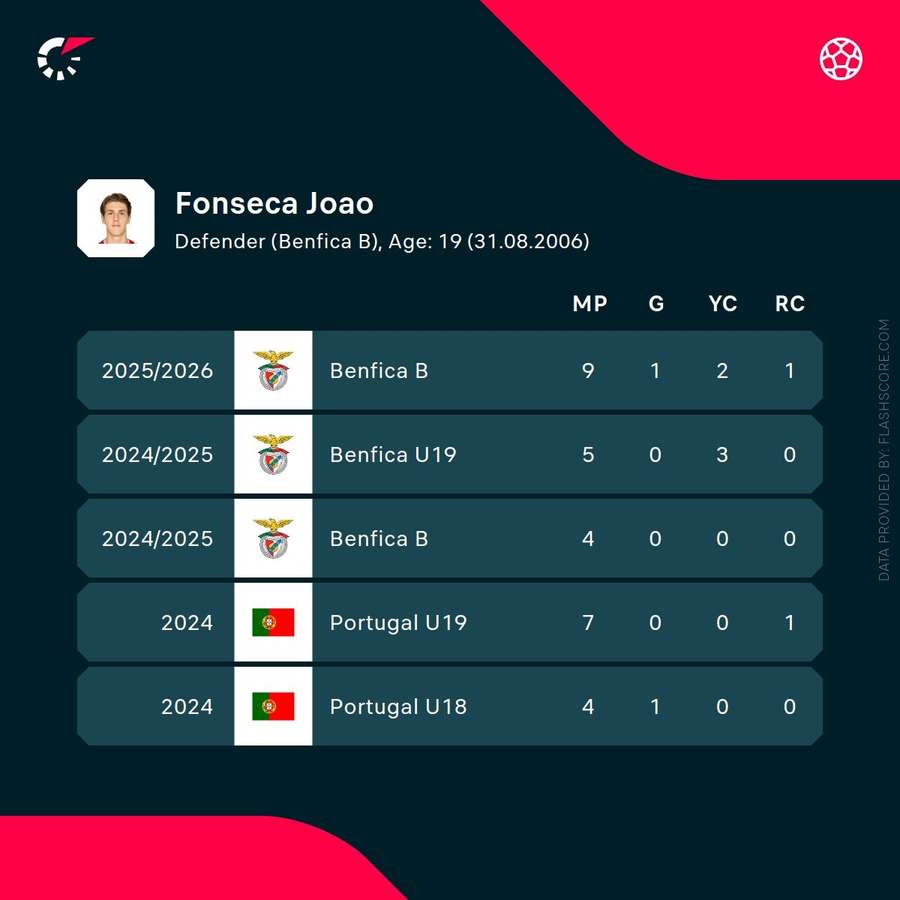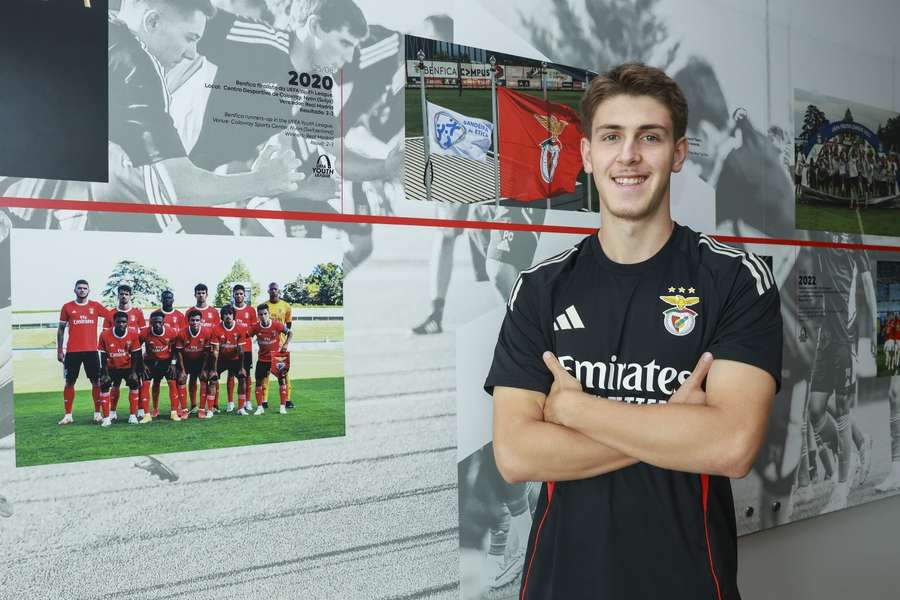In this exclusive interview with Flashscore, Joao Fonseca recalls his transition to Benfica Campus, his early days away from family, and talks about the training methods that allowed him to compete in Liga 2 in his first senior year.
It’s been nine years at Benfica and Seixal. At just 19, has it been quite an adventure?
"Yes, it’s been a wonderful journey, and it gets more serious every year. Football was just a way to have fun and play sports until I joined Benfica.
"I went to the CFT, which is a way for those who live far from Lisbon to represent Benfica while staying close to home, and that’s when things started to get more serious. Then I moved to Seixal, and it’s been great ever since."
What was your experience like in Taveiro before heading to Benfica Campus?
"Everything was very professional. The biggest difference I noticed was in the facilities. The coaches were all very skilled. We’d have tournaments where players from different CFTs came together, there was a great atmosphere, and those were really happy moments I’ll always remember."
And when you arrived here, was the work similar to what you’d done before?
"Yes, absolutely."
Did you find the change or the training methods strange?
"No, it was a continuation of the work I’d already been doing. The training was very similar, so adapting was easy."
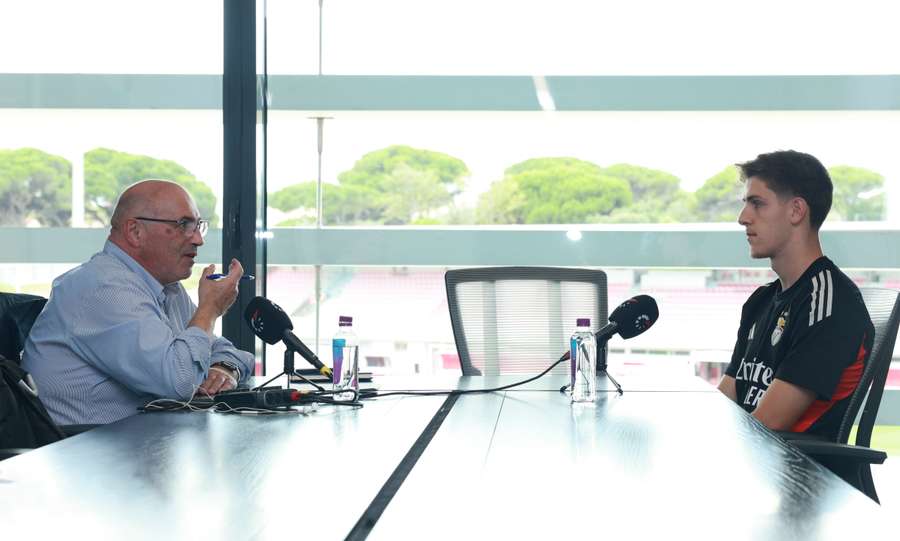
You joined Benfica at the under-13 level. Do you still remember your first day at Benfica Campus?
"I remember our first morning, waking up at seven to go play football together. I remember how excited and happy we all were. Living here was also really important for me, gaining independence, growing as a person, and building friendships that will last a lifetime."
What was your daily routine like when you lived at Benfica Campus?
"It changed depending on the age group, but at first it was always school in the morning, then we’d arrive late in the afternoon and train. At the more professional levels, school is in the afternoon, so we can train in the morning. Benfica and Colegio Guadalupe are flexible, so we can train in the mornings."
So basically, you always had everything you needed...
"Benfica always made it clear that finishing school up to 12th grade was very important. Until we’re 18, we have to be in school."
'Benfica is our second family'
Over all these years, you’ve seen the improvements made at Benfica Campus. Do you feel part of that evolution?
"Yes, I do. Honestly, since the day I arrived, it feels like every year, every month, there’s always something new, and it’s always evolving."
So you have a second family here...
"Without a doubt. I spend more time here than with my actual family, and that’s really how we see it - it’s our second family."
Did you miss your family in the early days?
"In the first years, I don’t think I missed them much, maybe because I was a bit naive or immature, just happy to be playing football. My parents always came on weekends, so I was in paradise.
"The hardest years were the transition to adulthood, around 16 or 17, when I was living here and wanted more freedom, and then when I moved out. But it’s better now."
The coach told us he even had to teach some players how to shave.
"That never happened to me, but it’s true for some."
Coming here requires a lot of sacrifice. Being at a club like Benfica is demanding. Did you handle that well from day one?
"Yes, I think once you decide this is what you want for your life, you have to give up a lot and make sacrifices. It’s probably harder at first, but then it becomes routine, and it’s all worth it because you’re representing this club and chasing your dream."
So, in the end, your drive helped you overcome all the difficulties?
"Exactly."
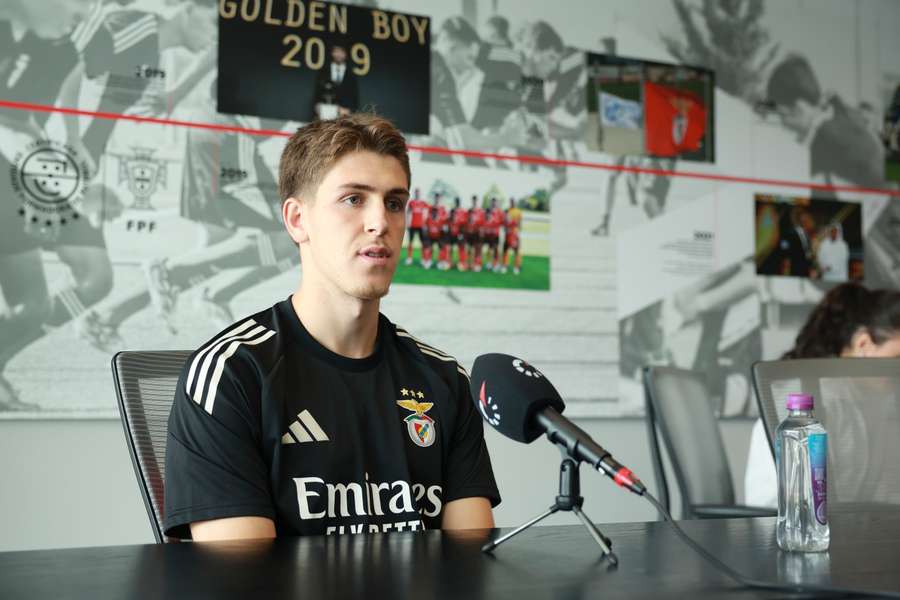
You’re at one of the best youth academies in the world. Are you aware of that?
"Of course, that’s always been made clear to us; we’re fully aware, it’s an amazing opportunity, and I think the motivation to be here always outweighs the challenges and sacrifices."
Some of the world’s best players have come from here. Did those examples inspire you, give you extra motivation to reach the top?
"Definitely. When you see that you’re part of an academy that produces so much talent and so many players who’ve reached the highest level, it makes you believe it’s possible, more than if you were somewhere else where players don’t stand out as much.
"Here, you really feel that if you do things the right way, you have a better chance of making it."
'I try to take the best from each player and emulate them'
Joao, you’re a centre-back, just like Ruben Dias, also a Benfica product. Is he your role model, or do you have another reference?
"I really like Ruben Dias, Tomas Araujo, Antonio Silva, all those who made it to the first team. They’re definitely examples to follow, and I try to take the best from each and emulate them."
This is your first senior year. Do you see yourself playing at Estadio da Luz soon? Maybe alongside Antonio Silva?
"Yes, that’s every player’s goal here. I think it’s important to stay grounded, focus on my daily progress and not think too far ahead. But of course, it’s a goal."
You’re part of the B team in your first senior year. Before that, you always played in higher age groups. Does that mean you’re more prepared than others? Do you feel different?
"No, I don’t feel different. These are just phases. For example, there were times when I played in my own age group and sometimes didn’t even play.
"In youth football, everyone has their own path, and it’s not worth comparing yourself to others. But I do think playing against stronger, older players helped me develop."
You’ve had a short but intense career. As a junior, you played in four competitions: Liga 2, Premier League International Cup, Youth League, and Liga Revelacao. More games, more experience. Will all that help with your transition to senior football?
"Definitely, and I think it’s part of what makes Benfica successful - giving us all these opportunities, competitive environments, and always playing against older players. That’s why we develop and improve so much faster."
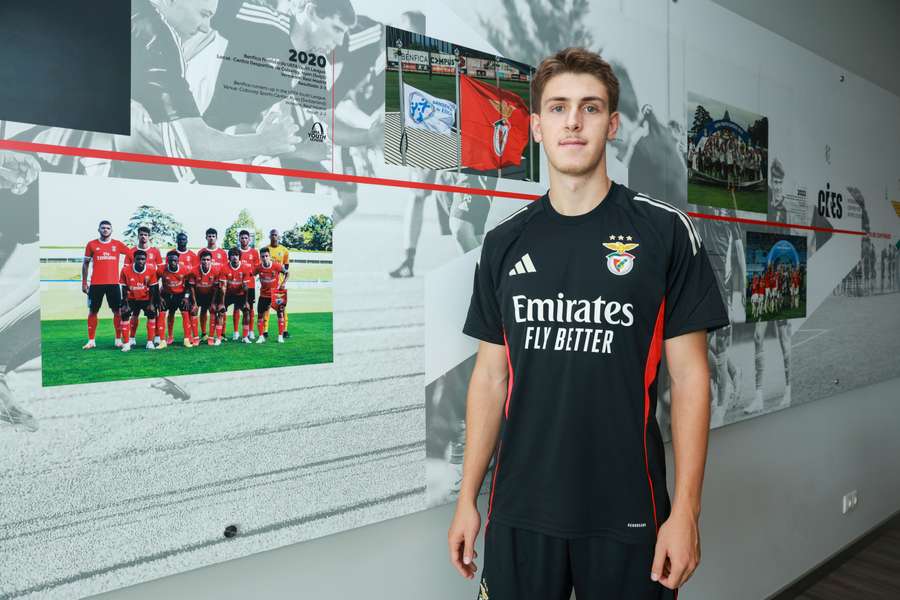
At Benfica, eight out of 10 players become professionals. Did you know that?
"I didn’t know, I just found out, but it doesn’t surprise me. The training methods and what you see here reflect the work being done, and now the numbers prove it."
You have 41 caps for the youth national teams and three goals. Is wearing that shirt an extension of the work you do here?
"Absolutely. The national team recognises what we do at the club. If we do things well, we can get called up, and that’s how it works."
Looking ahead, what could happen? Are your goals to play for Benfica’s first team?
"That’s definitely one of my dreams, but I have to work day by day and take things slowly."
Besides football, what has Benfica Campus given you?
"My mother often says she doesn’t regret anything. She feels I’m much more independent, responsible, and have better habits, because living here also helps you grow personally and gives you a lot of tools for life."
Has it made you a more responsible person?
"For sure, absolutely."
Football is a career with a short lifespan. Many players go on to become coaches, sporting directors... Is that something you’ve considered in your studies?
"Yes, of course. I’m at university. I’m not currently taking classes, it’s on hold, but it’s a plan B - you never know."
What’s your major?
"Management."
Who knows, maybe you’ll be a manager at Benfica Campus one day.
"Maybe, you never know."
Are you happy to be here?
"Very."
What advice would you give to someone who dreams of wearing this shirt?
"I think you should enjoy what you’re doing now at your club, if you have one, and if it’s really what you want, work hard, because opportunities can come up."
